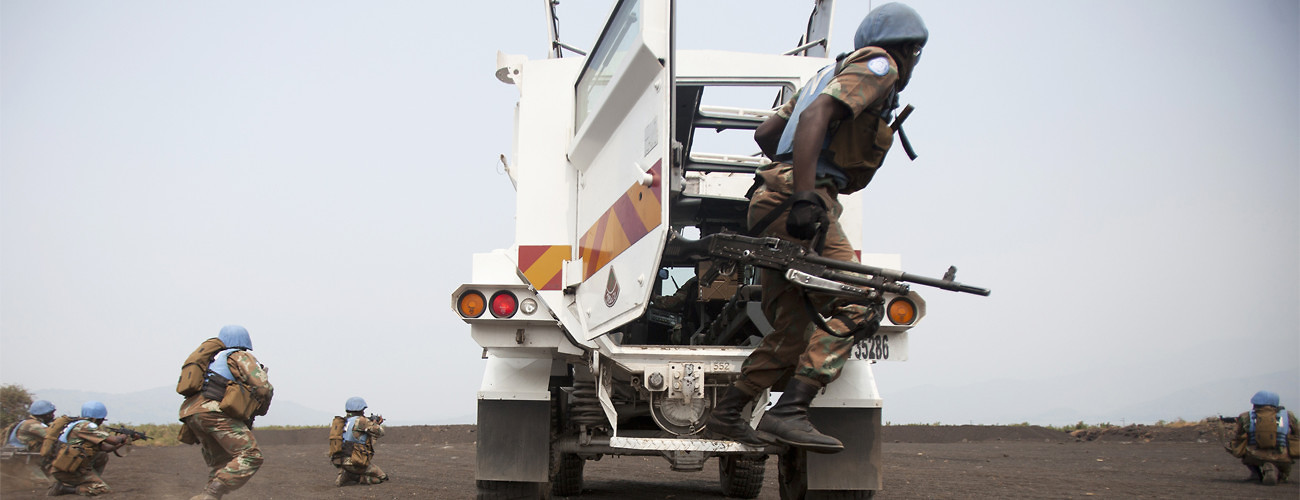In the Democratic Republic of the Congo, the UN’s peacekeeping mission as a whole—not just the Intervention Brigade component—is a party to the conflict under international law.
This is one of the key findings in a new IPI report examining the legal implications of the UN brigade’s unprecedented mandate to “neutralize” rebel groups.
This means that all military members of the UN mission, known as MONUSCO, no longer enjoy legal protection from attacks, according to authors Scott Sheeran and Stephanie Case. Its premises can be categorized as a military objective, which also puts UN civilian staff at risk. And troop-contributing countries may be less willing to provide forces to MONUSCO.
In fact, the brigade’s mandate appears to go beyond all three of the basic principles of UN peacekeeping—consent, impartiality, and non-use of force except in self-defense. This raises questions for the scope, role, and design of UN peace operations more broadly in carrying out offensive mandates, beyond traditional or even “robust” peacekeeping.
The Intervention Brigade is the UN’s first overtly offensive combat force and was seen by many as a success and a model for the future peacekeeping after it played a key role in ending the M23 insurgency in the Democratic Republic of the Congo last year.
Yet its inception was controversial, and there have been few detailed examinations of the new force’s legal status and the political and practical implications it brings.
As the brigade now turns its focus toward other armed groups in the DRC, the authors argue that it may risk undercutting the legal interpretation of MONUSCO’s and other missions’ long-standing mandates for the protection of civilians. In addition, since the brigade’s offensive mandate is likely to lead to increased detention of combatants, questions need to be addressed about the UN’s international obligations concerning detainees.








